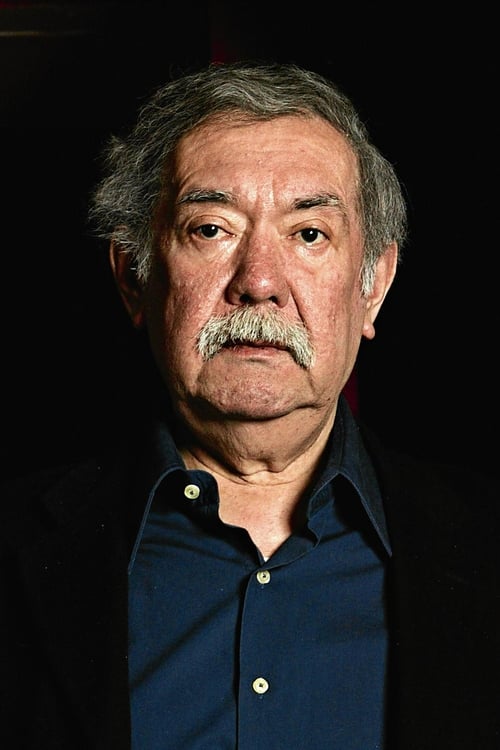
Producer
A satirical take on President Salvador Allende's Popular Unity process prior to the 1973 Chilean coup d'état. The film is made up of a series of short stories, in which different worlds cross paths.

Screenplay
A satirical take on President Salvador Allende's Popular Unity process prior to the 1973 Chilean coup d'état. The film is made up of a series of short stories, in which different worlds cross paths.

Director
A satirical take on President Salvador Allende's Popular Unity process prior to the 1973 Chilean coup d'état. The film is made up of a series of short stories, in which different worlds cross paths.
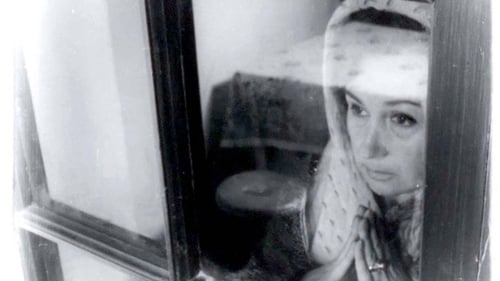
Production Design
A man whose wife has committed suicide, appears to him as a ghost. The ghost follows him everywhere, under the bed, under tables… After seeing the ghost so frequently, the man begins to resemble her.

Casting
A man whose wife has committed suicide, appears to him as a ghost. The ghost follows him everywhere, under the bed, under tables… After seeing the ghost so frequently, the man begins to resemble her.

Screenplay
A man whose wife has committed suicide, appears to him as a ghost. The ghost follows him everywhere, under the bed, under tables… After seeing the ghost so frequently, the man begins to resemble her.

Director
A man whose wife has committed suicide, appears to him as a ghost. The ghost follows him everywhere, under the bed, under tables… After seeing the ghost so frequently, the man begins to resemble her.

On Raúl Ruiz's missing Taiwanese film "La comédie des ombres" and the projection of Clark's "Double Ghost" at the Chin Pao Shan cemetery on 19 august 2018 (anniversary of Ruiz's death and Clark's birthday).

Self
A documentary recorded during the filming of "The Wandering Soap Opera" by Raúl Ruiz. Made in 1990 and completed 27 years later, in 2017. The film brings closer the approach in Ruiz's directing style and his personal vision of Cinema.
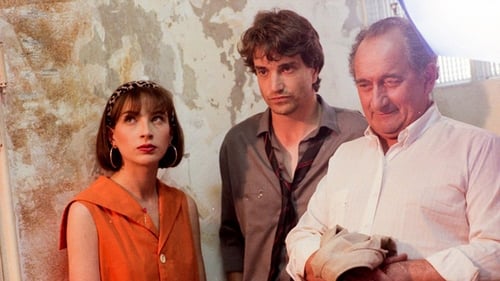
Screenplay
The film revolves around the concept of soap opera. Its structure is based on the assumption that Chilean reality does not exist, but rather is an ensemble of soap operas.

Producer
The film revolves around the concept of soap opera. Its structure is based on the assumption that Chilean reality does not exist, but rather is an ensemble of soap operas.

Director
The film revolves around the concept of soap opera. Its structure is based on the assumption that Chilean reality does not exist, but rather is an ensemble of soap operas.

(archive footage)
Joaquim Pinto has been living with HIV and VHC for almost twenty years. “What now? Remind Me” is the notebook of a year of clinical studies with toxic, mind altering drugs as yet unapproved. An open and eclectic reflection on time and memory, on epidemics and globalization, on survival beyond all expectations, on dissent and absolute love. In a to-and-fro between present and past memories, the film is also a tribute to friends departed and those who remain.

Director
Jane appears to be ideal: attractive, intelligent, unruffled by her employer's abrupt eccentricities. But, gradually, we come aware that Jane has another agenda. Incrementally, Sir Paul's familiar surroundings are altered. His housekeeper is diverted away, strange things happen around the house and he becomes increasingly dependent on his new assistant.
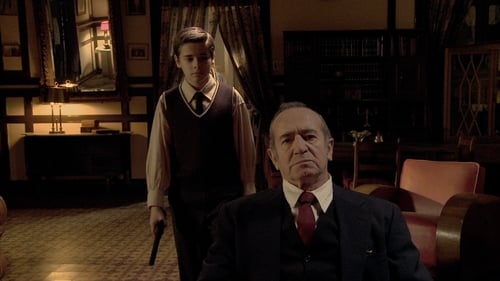
Editor
A drama centered on an office worker on the verge of retirement who begins to relive both real and imagined memories.

Writer
A drama centered on an office worker on the verge of retirement who begins to relive both real and imagined memories.

Director
A drama centered on an office worker on the verge of retirement who begins to relive both real and imagined memories.

Self
The house of the director has a door out to the sidewalk. This gate separates the inside from the outside. The interior contains the filmmaker's personal story and his world of objects, thoughts and imaginations. Outer space contains the city of Santiago de Chile. The stories of the world inside the house are interrupted when the doorbell rings unknown and thus come into the film.

Writer
In one of his very last projects, Raul Ruiz celebrates the films of his historical predecessor Jean Painlevé, a documentary innovator whose work always blended science with surrealism. Ruiz and friends further perfect the art of mystification. Why it is so difficult to count fish in an aquarium? Ruiz, his loyal actor Melvil Poupaud and his producer François Margolin come up with a wide range of hypotheses. With their bone-dry wit, they keep up the tradition of the French pataphysics: the science of imaginary solutions. (IFFR)

Director
In one of his very last projects, Raul Ruiz celebrates the films of his historical predecessor Jean Painlevé, a documentary innovator whose work always blended science with surrealism. Ruiz and friends further perfect the art of mystification. Why it is so difficult to count fish in an aquarium? Ruiz, his loyal actor Melvil Poupaud and his producer François Margolin come up with a wide range of hypotheses. With their bone-dry wit, they keep up the tradition of the French pataphysics: the science of imaginary solutions. (IFFR)

In one of his very last projects, Raul Ruiz celebrates the films of his historical predecessor Jean Painlevé, a documentary innovator whose work always blended science with surrealism. Ruiz and friends further perfect the art of mystification. Why it is so difficult to count fish in an aquarium? Ruiz, his loyal actor Melvil Poupaud and his producer François Margolin come up with a wide range of hypotheses. With their bone-dry wit, they keep up the tradition of the French pataphysics: the science of imaginary solutions. (IFFR)

Writer
A coin and a cup of coffee on a table top. Raúl Ruiz gets the most from this minimal set-up, both visually and through the laconic soundtrack.

Don Fernando (voice)
A coin and a cup of coffee on a table top. Raúl Ruiz gets the most from this minimal set-up, both visually and through the laconic soundtrack.

Director
A coin and a cup of coffee on a table top. Raúl Ruiz gets the most from this minimal set-up, both visually and through the laconic soundtrack.

In the fall of 2010, Bozon and co-conspirator Pascale Bodet commandeered the first floor of Paris’s famed Centre Pompidou for 10 days of screenings, lectures and performances that amounted to a counter-canonical history of French cinema. During the ensuing merriment (entitled Beaubourg, la dernière Major !) audience members were invited to observe the daily making of this film, directed by Bozon and written by Axelle Ropert, about an inexperienced young journalist (Laure Marsac) sent to the Pompidou to interview a maverick artistic impresario (Thomas Chabrol). The result is an unexpected love story that is also a record of this landmark exhibition, featuring cameos by Raul Ruiz, Paul Vecchiali, Luc Moullet and more !

Director
The tragic story of the many lives of Father Dinis, his dark origins and his pious works, and the different fates of all those who, trapped in a sinister web of love, hate and crime, cross paths with him through years of adventure and misfortune in the convulsed Europe of the late 18th and early 19th centuries.

Writer
After long decades of exile, a leftist former activist returns to Chile to settle accounts with his conscience, related to the death of a colleague and political hero . The task of Atalibar is to reveal his secret. But his view clashes with the current country, godless, far from the old ideologies and where all his old colleagues have changed.

Production Design
Surreal gothic comedy about a gambler who wins a strange Chilean mansion and takes his frail wife there.

Screenplay
Surreal gothic comedy about a gambler who wins a strange Chilean mansion and takes his frail wife there.

Director
Surreal gothic comedy about a gambler who wins a strange Chilean mansion and takes his frail wife there.
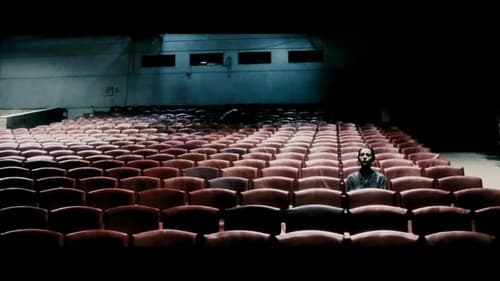
Director
A collective film of 33 shorts directed by different directors about their feeling about cinema.
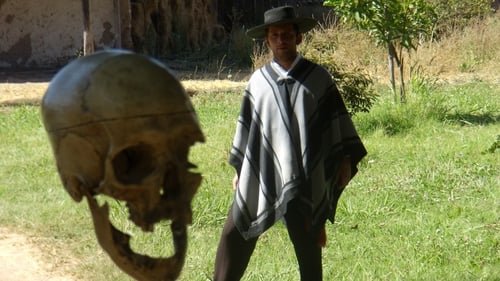
Writer
This was a man. He lived with his mother. He cared a manor house in the countryside of Chile. One day the man found a bone in the garden. The bone was bored. That was a bone flute. The man with the flute music play. And music song became. The voice of the song begging to seek the other bones of his scattered body. The man and his mother were in those ways of God and hell, looking for the bones that make up the skeleton of that Christian. And give him a Christian burial. And they saw what they saw, they lived what they lived. Many stories lived. And although they did not tell anyone, others told them.

Director
This was a man. He lived with his mother. He cared a manor house in the countryside of Chile. One day the man found a bone in the garden. The bone was bored. That was a bone flute. The man with the flute music play. And music song became. The voice of the song begging to seek the other bones of his scattered body. The man and his mother were in those ways of God and hell, looking for the bones that make up the skeleton of that Christian. And give him a Christian burial. And they saw what they saw, they lived what they lived. Many stories lived. And although they did not tell anyone, others told them.

Director
A blind man tells his niece about the time he screened Casablanca to a rural village.
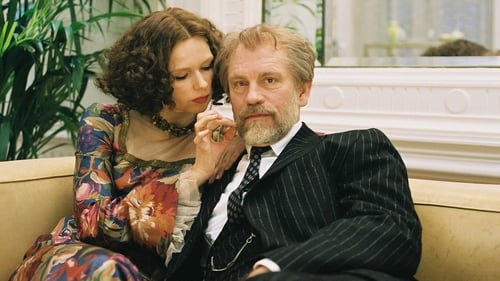
Writer
A portrait of Austrian artist Gustav Klimt whose lavish, sexual paintings came to symbolize the art nouveau style of the late 19th and early 20th century.

Director
A portrait of Austrian artist Gustav Klimt whose lavish, sexual paintings came to symbolize the art nouveau style of the late 19th and early 20th century.
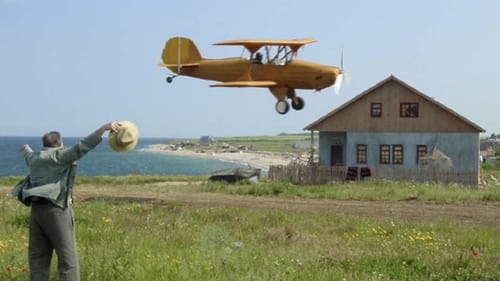
Writer
Set in 1973 during the coup d'etat in Chile, Max recalls his encounters in London during World War II with French aviator Antoine, a childhood hero he first met in his native country one morning in 1932 and who initiated him to the wonders of aviation.

Director
Set in 1973 during the coup d'etat in Chile, Max recalls his encounters in London during World War II with French aviator Antoine, a childhood hero he first met in his native country one morning in 1932 and who initiated him to the wonders of aviation.

Screenplay
In a bar in Santiago, two old men talk over their past. This is a strange discussion. In fact, they talk of themselves as if they were dead. We don't know what is true or false, what is dream or reality.

Director
In a bar in Santiago, two old men talk over their past. This is a strange discussion. In fact, they talk of themselves as if they were dead. We don't know what is true or false, what is dream or reality.

Director

Director
A chronicle of Raúl Ruiz’s production of Michèle Reverdy’s opera “Médée”.

Writer
A mediocre pulp novelist is approached by a stranger claiming to be a serial killer with a proposition to chronicle his crimes.

Director
A mediocre pulp novelist is approached by a stranger claiming to be a serial killer with a proposition to chronicle his crimes.

Writer
A father is scheming to have his slightly mental daughter from an earlier marriage killed by allowing a murderous psychopath to be released from the asylum and led to his house. However, the psychopath and the daughter fall for each other.

Director
A father is scheming to have his slightly mental daughter from an earlier marriage killed by allowing a murderous psychopath to be released from the asylum and led to his house. However, the psychopath and the daughter fall for each other.

Director of Photography
An experimental four-part 2002 Franco-Chilean digital video series written and directed by Raúl Ruiz. The first part won a FIPRESCI Award at the Montreal World Film Festival in 2002 "for the director's personal exploration into his homeland, using DV in a rigorous yet playful manner".

Narrator
An experimental four-part 2002 Franco-Chilean digital video series written and directed by Raúl Ruiz. The first part won a FIPRESCI Award at the Montreal World Film Festival in 2002 "for the director's personal exploration into his homeland, using DV in a rigorous yet playful manner".

Editor
An experimental four-part 2002 Franco-Chilean digital video series written and directed by Raúl Ruiz. The first part won a FIPRESCI Award at the Montreal World Film Festival in 2002 "for the director's personal exploration into his homeland, using DV in a rigorous yet playful manner".

Producer
An experimental four-part 2002 Franco-Chilean digital video series written and directed by Raúl Ruiz. The first part won a FIPRESCI Award at the Montreal World Film Festival in 2002 "for the director's personal exploration into his homeland, using DV in a rigorous yet playful manner".

Writer
An experimental four-part 2002 Franco-Chilean digital video series written and directed by Raúl Ruiz. The first part won a FIPRESCI Award at the Montreal World Film Festival in 2002 "for the director's personal exploration into his homeland, using DV in a rigorous yet playful manner".

Director
An experimental four-part 2002 Franco-Chilean digital video series written and directed by Raúl Ruiz. The first part won a FIPRESCI Award at the Montreal World Film Festival in 2002 "for the director's personal exploration into his homeland, using DV in a rigorous yet playful manner".

Director
In the early 2000s filmmaker Raul Ruiz followed painter Jean Miotte to different locations (New York, France, Germany).
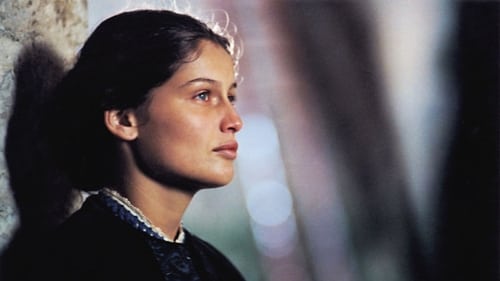
Director
At a wake one night in 1945, a group of aged women recall the life of one of their number. Sixty years before, Thérèse was barely 20 years old when she eloped with her boyfriend, Firmin, a blacksmith, to Châtillon, a town in Provence. Here, she makes the acquaintance of the wealthy Madame Numance, who is known for her good deeds. Realising that Thérèse is pregnant and unemployed, Madame Numance insists that she moves into a house on her estate. Whilst Firmin resents the arrangement, Thérèse soon finds that she can exploit the situation, using her benefactor's naivety and generosity for her own gain..

Writer
Today, Camille turns nine. He had sworn that on his 9th birthday he would show his parents the videos he was shooting on the side - the tail of a cat scampering away, a window, and a veiled woman's face - an intriguing picture... Later that day, Camille's mother, Ariane, meets up with her son in the park. The boy appears perturbed. He is leaning against a tree, eyes cast down. He says that now he wants to return to his "real home" and his "real mother."

Director
Today, Camille turns nine. He had sworn that on his 9th birthday he would show his parents the videos he was shooting on the side - the tail of a cat scampering away, a window, and a veiled woman's face - an intriguing picture... Later that day, Camille's mother, Ariane, meets up with her son in the park. The boy appears perturbed. He is leaning against a tree, eyes cast down. He says that now he wants to return to his "real home" and his "real mother."
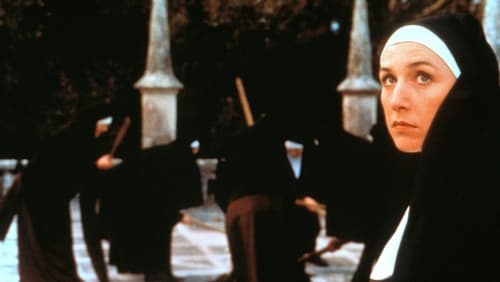
Screenplay
A serious young man of free spirit is forced by his surroundings to become rich at all costs. A group of blind children tries to open the eyes of the unbelievers to the Christian faith. Retired nuns who open a brothel, to pay the running costs of the convent. These rather ironic paradoxes turn this fairytale into a philosophical fable.

Director
A serious young man of free spirit is forced by his surroundings to become rich at all costs. A group of blind children tries to open the eyes of the unbelievers to the Christian faith. Retired nuns who open a brothel, to pay the running costs of the convent. These rather ironic paradoxes turn this fairytale into a philosophical fable.

Scenario Writer
Marcel Proust (1871-1922) is on his deathbed. Looking at photographs brings memories of his childhood, his youth, his lovers, and the way the Great War put an end to a stratum of society. His memories are in no particular order, they move back and forth in time. Marcel at various ages interacts with Odette, with the beautiful Gilberte and her doomed husband, with the pleasure-seeking Baron de Charlus, with Marcel's lover Albertine, and with others; present also in memory are Marcel's beloved mother and grandmother. It seems as if to live is to remember and to capture memories is to create a work of great art. The memories parallel the final volume of Proust's novel.

Director
Marcel Proust (1871-1922) is on his deathbed. Looking at photographs brings memories of his childhood, his youth, his lovers, and the way the Great War put an end to a stratum of society. His memories are in no particular order, they move back and forth in time. Marcel at various ages interacts with Odette, with the beautiful Gilberte and her doomed husband, with the pleasure-seeking Baron de Charlus, with Marcel's lover Albertine, and with others; present also in memory are Marcel's beloved mother and grandmother. It seems as if to live is to remember and to capture memories is to create a work of great art. The memories parallel the final volume of Proust's novel.

Director
Confusing realities surface in this paranoid film dealing with the fragile nature of a young woman recovering from rape and an apparent attempted suicide. In one reality, she is a killer destroyer of men. In another she is the new wife on a Jamaican honeymoon with her husband (William Baldwin), who is trying to help her recover. Which is real is the question as the story unfolds.

Writer
Madeleine is with her lover, Jean-Paul, when her husband arrives home and catches the two together. Madeleine kills her husband and tells Jean-Paul to flee before the police arrive. After Jean-Paul drives away, he picks up a hitchhiker. When the car, stolen by the hitchhiker, explodes, police believe the dead hitchhiker is Jean-Paul. Madeleine takes up with Jean-Paul's brother, Bastien, while Jean-Paul, arriving in Strasbourg, is mistaken for the heir to a fortune. The detective on the case spends more time writing crime novels than investigating real-life crimes.
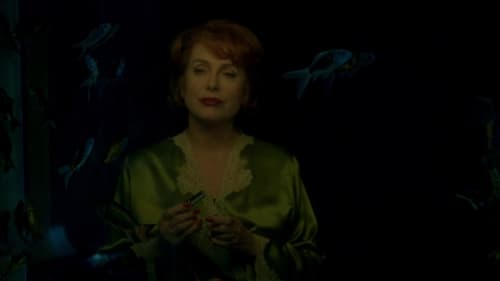
Writer
At her son's funeral, Solange, a lawyer famous for losing hopeless cases, agrees to defend René, her son's age, accused of murdering his wealthy aunt, Jeanne, who's part of the Franco-Belgian Psychoanalytic Society, known for odd views and methods. She reads Jeanne's journal, documenting René's criminal tendencies. Solange believes him innocent, manipulated into the murder or framed. Odd psychiatrists turn up, including Georges Didier, who runs FBPS, and his rival, Christian, who believes crime originates in a story's taking hold of a person. After the verdict, René and Solange's relationship changes, Georges and his society commit a bizarre act, and the police record Solange's story.

Director
At her son's funeral, Solange, a lawyer famous for losing hopeless cases, agrees to defend René, her son's age, accused of murdering his wealthy aunt, Jeanne, who's part of the Franco-Belgian Psychoanalytic Society, known for odd views and methods. She reads Jeanne's journal, documenting René's criminal tendencies. Solange believes him innocent, manipulated into the murder or framed. Odd psychiatrists turn up, including Georges Didier, who runs FBPS, and his rival, Christian, who believes crime originates in a story's taking hold of a person. After the verdict, René and Solange's relationship changes, Georges and his society commit a bizarre act, and the police record Solange's story.

Writer
If any single piece can act as a key to Ruiz, it may be the 1997 short Le Film à Venir (The Film to Come). The titular film is a holy fragment of celluloid that can only be seen by a secret society known as the Philokinetes. They watch it on a loop, somnambulating through a life that is unreal by comparison. It is the belief of the Philokinetes that film has an existence “independent from humans. Cinema, they said, is the primeval soup of a new life form. There from were to emerge pure screening creatures. Which is to say, non-topical beings.” - n+1

Director
If any single piece can act as a key to Ruiz, it may be the 1997 short Le Film à Venir (The Film to Come). The titular film is a holy fragment of celluloid that can only be seen by a secret society known as the Philokinetes. They watch it on a loop, somnambulating through a life that is unreal by comparison. It is the belief of the Philokinetes that film has an existence “independent from humans. Cinema, they said, is the primeval soup of a new life form. There from were to emerge pure screening creatures. Which is to say, non-topical beings.” - n+1

Screenplay
The story of a neurotic bachelor who, after marrying a beautiful woman, submits her to increasingly deranged accusations of infidelity and pleas for forgiveness.
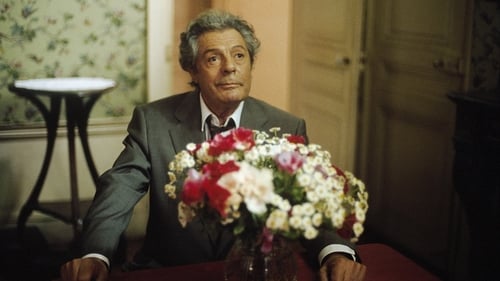
Writer
Four intertwining stories of bizarre occurrences in Paris featuring a man who was stolen away by fairies, a professor who becomes a tramp, the lovers who inherit a chateau – and the last tale that connects all that has gone before.

Director
Four intertwining stories of bizarre occurrences in Paris featuring a man who was stolen away by fairies, a professor who becomes a tramp, the lovers who inherit a chateau – and the last tale that connects all that has gone before.

Director
Anthology of short films about the French city of Nice, by various directors. A homage to Jean Vigo and his "À propos de Nice" from 1930.

Writer
Pierre, a middle-aged tourist guide, is the victim of a sudden failure : he does not recognize anything about him any longer. He goes back home and in his apartment he finds a mysterious young man who tells him he is here to avenge a young woman who has taken her own life. What share of responsibility does Pierre hold in this situation?

Director
Pierre, a middle-aged tourist guide, is the victim of a sudden failure : he does not recognize anything about him any longer. He goes back home and in his apartment he finds a mysterious young man who tells him he is here to avenge a young woman who has taken her own life. What share of responsibility does Pierre hold in this situation?
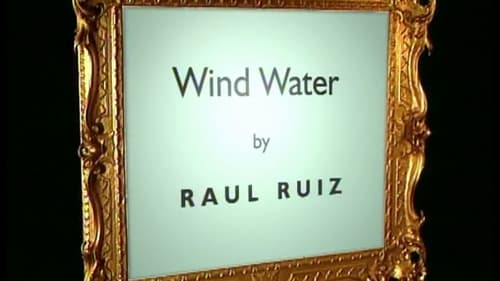
Writer
In Wind Water, Ruiz stages a three-way dialogue between three great cultures: the West, China and Arabia. He imagines what might occur if Shih-T’ao’s six poetic procedures for attaining the primal respiration or cosmic breath in painting were applied to one of the flagships of Western art, Velazquez’s Las Meninas. Ruiz wants the three cultures to interact and test each other like the paper, stone and scissors of the children’s game. The result is an insoluble dispute, a différend. No reconciliation or compromise is possible between these cultural outlooks.

Director
In Wind Water, Ruiz stages a three-way dialogue between three great cultures: the West, China and Arabia. He imagines what might occur if Shih-T’ao’s six poetic procedures for attaining the primal respiration or cosmic breath in painting were applied to one of the flagships of Western art, Velazquez’s Las Meninas. Ruiz wants the three cultures to interact and test each other like the paper, stone and scissors of the children’s game. The result is an insoluble dispute, a différend. No reconciliation or compromise is possible between these cultural outlooks.

Writer
A wild short made as part of a filmmaking workshop that Raúl Ruiz ran in Bogotá in October 1993.

Director
A wild short made as part of a filmmaking workshop that Raúl Ruiz ran in Bogotá in October 1993.

Screenplay
A surreal travel drama, shot on Sicility with Italian actors. IlViaggio Clandestino is a film about saints and sinners. Whether you areblessed or doomed is often dependent on someone's soul that on whether theypray or suffer. The kindred spirit of San Gil ! the Holy Gil ! is CiccioBavaria who, unilke the former, continues to seek sin. For Bavaria sin isliberating and dynamic. The film tells the story of the journey made by thesetwo protagonists; a journey that leads to the demise of San Gil, while Bavariais reincarnated as Buddha. There is another traveller, a clandestinetraveller. Christ, always fleeing the angels. This Christ does not helphumanity with miracles, but by keeping himself alive as best he can givingweather forecasts.In this strange sainty story, Ruiz allowed himself ot be inspired byapocryphal books about saints of flesh and blood.

Director
A surreal travel drama, shot on Sicility with Italian actors. IlViaggio Clandestino is a film about saints and sinners. Whether you areblessed or doomed is often dependent on someone's soul that on whether theypray or suffer. The kindred spirit of San Gil ! the Holy Gil ! is CiccioBavaria who, unilke the former, continues to seek sin. For Bavaria sin isliberating and dynamic. The film tells the story of the journey made by thesetwo protagonists; a journey that leads to the demise of San Gil, while Bavariais reincarnated as Buddha. There is another traveller, a clandestinetraveller. Christ, always fleeing the angels. This Christ does not helphumanity with miracles, but by keeping himself alive as best he can givingweather forecasts.In this strange sainty story, Ruiz allowed himself ot be inspired byapocryphal books about saints of flesh and blood.

Director
Tunisia itself is the subject; we wanted to render the genius of the site. Tunisia is almost the central character of this little film: we see the relation of the city to the sea, the traces that bear witness to its foundation, the remains of Carthage, the symbolism of the recently discovered Medina coin … The splendours of the house interiors and courtyards are associated with a scene of origin, what psychoanalysis calls a primal scene. Entering these houses opens up a world peopled by women: the child’s ‘homecoming’ in the hands of women is staged as an abduction, playing doubly on fascination and terror. These places were mine, from my childhood, they can be found almost intact – it’s the return of the exile visiting the kingdom. I let Ruiz discover all this, and immediately that led him to echoes and resonances ranging from Spain to Chile.

Writer
In this mystical comedy, Felicien has traveled to Portugal from France soon after the end of the First World War. It seems that his recently deceased father had invested a lot of money in a factory located in a remote village, and he has come to evaluate that investment. He gets some clues to the real situation in the town when the man driving his coach refuses to go any further and leaves him on a section of road which is practically paved with abandoned crutches. After a short trek, he meets up with the local dignitary who is to show him around, and he meets a priest and an artist. The priest gives a further clue to the events taking place in the village when he indicates that he's completely exasperated with the endless miracles that seem to be taking place. From that point onward, amazing coincidences, visions and miracles take place in great numbers.

Narrator
Chile is seen through the eyes of a Chinese painter - a traditional painter who uses the concepts of XVIII century Shih-T'ao.

Director
Chile is seen through the eyes of a Chinese painter - a traditional painter who uses the concepts of XVIII century Shih-T'ao.

Director
In this mystical comedy, Felicien has traveled to Portugal from France soon after the end of the First World War. It seems that his recently deceased father had invested a lot of money in a factory located in a remote village, and he has come to evaluate that investment. He gets some clues to the real situation in the town when the man driving his coach refuses to go any further and leaves him on a section of road which is practically paved with abandoned crutches. After a short trek, he meets up with the local dignitary who is to show him around, and he meets a priest and an artist. The priest gives a further clue to the events taking place in the village when he indicates that he's completely exasperated with the endless miracles that seem to be taking place. From that point onward, amazing coincidences, visions and miracles take place in great numbers.

Adaptation
A well-bred young woman who prizes the virtue of fidelity remains faithful to the doctor who deflowers her, even after he marries her invalid sister.

Writer
A well-bred young woman who prizes the virtue of fidelity remains faithful to the doctor who deflowers her, even after he marries her invalid sister.

Writer
All the characters are in hell, but they act as though the are in a sitcom, with canned laughter. It's based on Arcana Celestia by Swedenborg, a Swedish esoteric theologian from the 18th Century who started seeing ghosts, angels and demons around him. Instead of seeing a physician about it, he accepted the fact and began studying and interviewing his own hallucinations, like an anthropologist. He was convinced that people in hell are happy, because you find what you want there.

Director
All the characters are in hell, but they act as though the are in a sitcom, with canned laughter. It's based on Arcana Celestia by Swedenborg, a Swedish esoteric theologian from the 18th Century who started seeing ghosts, angels and demons around him. Instead of seeing a physician about it, he accepted the fact and began studying and interviewing his own hallucinations, like an anthropologist. He was convinced that people in hell are happy, because you find what you want there.

Director
These six video segments (10 minutes each) were originally developed for broadcast on Channel 4 as the second installment in the larger, never completed, series comissioned for Peter Greenaway and Tom Philips' A TV Dante (1989). But it was never aired. Ruiz's treatment of the six Cantos can be taken together as a bridge between his previous visions of hell in Mémoire des apparences AKA Life is a Dream (1986) and La Chouette aveugle (1987) and themore recent series of essay videos that he has made for Chilean television under the title Cofralandes (2002).

Producer

Writer
Inspired in form by American police TV shows and soap operas, The Golden Boat is a madcap, surreal dash through the streets of New York city, telling the mysterious and often hilarious story of an aged street-person named Austin, a comically compulsive assassin, as he joins up with a young rock critic and philosophy student named Israel Williams. In the course of their adventures, Austin pursues his object of desire - a Mexican soap opera star - and along the way engages a host of TV characters and bit players, whose repartee range from gangsterish insults to the question of God's existence.

Director
Inspired in form by American police TV shows and soap operas, The Golden Boat is a madcap, surreal dash through the streets of New York city, telling the mysterious and often hilarious story of an aged street-person named Austin, a comically compulsive assassin, as he joins up with a young rock critic and philosophy student named Israel Williams. In the course of their adventures, Austin pursues his object of desire - a Mexican soap opera star - and along the way engages a host of TV characters and bit players, whose repartee range from gangsterish insults to the question of God's existence.

Writer
Collaborative experimental project on which three director made different films about the Swedish icebreaker "Frej".

Director
Collaborative experimental project on which three director made different films about the Swedish icebreaker "Frej".

Director
A series of philosophical dialogues on friendship, architecture, electricity, cannibalism and human rights.

Alter ego of the Catholic nagger
Michele is a Communist MP who loses his memory in a car crash—although nobody seems to notice. Over the course of a water polo match ahead of election day, he starts to remember his past life, revealing the picture of a man whose personal and political identity crisis mirrors the one of Italian communism.

Writer
From the construction of a sculpture "life size" in the earth, the director Boris Lehman imagines a story that staged a sculptor (Paulus Brun) struggling with an impossible order. The man of land is "golemise", takes life in the countryside, and ends up dying on an opera stage.

Writer
H., 35, an Arabian immigrant, works as projectionist in an old cinema. One day, drawn by the music, he looks through the window of the booth and is fascinated: the dancer he sees on the screen seems to be looking straight into his eyes. He falls in love with her, but the vision last only a moment. Shortly afterwards, an elderly man storms into the projection booth and claims he is his uncle.
H. wants to prepare a meal for him and reaches for the oil bottle: he sees the same dancer on the label…. H begins to find echoes of his own life in the images he projects. Everything changes when fiction and reality merge...

Director
H., 35, an Arabian immigrant, works as projectionist in an old cinema. One day, drawn by the music, he looks through the window of the booth and is fascinated: the dancer he sees on the screen seems to be looking straight into his eyes. He falls in love with her, but the vision last only a moment. Shortly afterwards, an elderly man storms into the projection booth and claims he is his uncle.
H. wants to prepare a meal for him and reaches for the oil bottle: he sees the same dancer on the label…. H begins to find echoes of his own life in the images he projects. Everything changes when fiction and reality merge...

Writer
Third and final part of collaborative project Brise Glace. Directed by Raúl Ruíz.

Director
Third and final part of collaborative project Brise Glace. Directed by Raúl Ruíz.

Writer
A baroque mix of revolutionary politics, pop culture and semiotics loosely based on the play by Pedro Calderón de la Barca. A young prince learns that life is just a dream from which we wake when we die. And that dreams may be as real as life.

Director
A baroque mix of revolutionary politics, pop culture and semiotics loosely based on the play by Pedro Calderón de la Barca. A young prince learns that life is just a dream from which we wake when we die. And that dreams may be as real as life.

Writer
Professor Taranne, a conceited university Professor, is subject to several absurd and disquieting incidents from the world surrounding him. He is being accused of things he couldn't have been doing. He starts doubting himself - a self that might be fragmented or multiple.

Director
Professor Taranne, a conceited university Professor, is subject to several absurd and disquieting incidents from the world surrounding him. He is being accused of things he couldn't have been doing. He starts doubting himself - a self that might be fragmented or multiple.
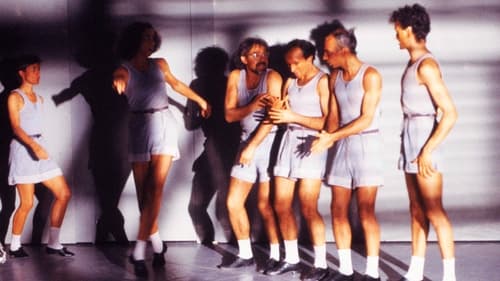
Writer
A Ruizian adaptation of Jean-Claude Gallotta's iconic wordless ballet choreography.

Director
A Ruizian adaptation of Jean-Claude Gallotta's iconic wordless ballet choreography.

Writer
A man comes to visit an acquaintance who is supposed to be sick and talks to his sister while he is waiting.

Director
A man comes to visit an acquaintance who is supposed to be sick and talks to his sister while he is waiting.

Director
Richard of Gloucester uses murder and manipulation to claim England's throne.
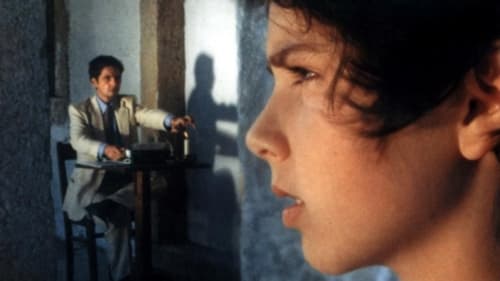
Writer
Jim is a small child who lives in an inn run by his parents. The arrival of a strange captain to the Island they live will trouble his existence and tip him into an universe of adventures.

Director
Jim is a small child who lives in an inn run by his parents. The arrival of a strange captain to the Island they live will trouble his existence and tip him into an universe of adventures.

Screenplay
This quickly-filmed avant-garde farce by prolific director Raul Ruiz features an insomniac (Michel Lonsdale) whose main preoccupation is surreptitiously watching private matters -- he is a voyeur. He and an equally disreputable acquaintance rape a woman alongside the Seine, a crime made all the worse because she is pregnant. The rest of this slow-paced film deals with the consequences of that action.

Director
This quickly-filmed avant-garde farce by prolific director Raul Ruiz features an insomniac (Michel Lonsdale) whose main preoccupation is surreptitiously watching private matters -- he is a voyeur. He and an equally disreputable acquaintance rape a woman alongside the Seine, a crime made all the worse because she is pregnant. The rest of this slow-paced film deals with the consequences of that action.

Marinero
A fire started by Harry Thompson destroys the Liguria, a legendary ship of the 19th century, and its treasure of gold and diamonds sinks in the sea. Thompson manages to escape unaware that Albizetti sleeps in the same lifeboat he uses. They manage to arrive at a deserted island, which has also been reached on the opposite shore– by the other survivors of the shipwreck: three children, a woman and three men.

Director
Régime sans pain, influenced by (Ruiz's) friend Jean Baudrillard (and calling) to mind grade-Z SF, grew out of a commission to direct a music video (featuring French cult rock duo of Angèle/Maimone). Ruiz offered a counterproposal that he direct several music videos rather than one; once this deal was made, he shot enough material to interconnect the various videos until he arrived at a feature.

Screenplay
A sickly young girl is given away by her father to a childless couple. Twenty years later, she marries her adopted father.

This eccentric short directed by Keith Griffiths, outlines Ruiz’s work, biography and preoccupations and includes a rare interview with the director.

Self
Short film showing cinematographer Henri Alekan, director Raúl Ruiz and actress Olimpia Carlisi at work creating sublime visual effects of the sort seen in City of Pirates.

Director
Short film showing cinematographer Henri Alekan, director Raúl Ruiz and actress Olimpia Carlisi at work creating sublime visual effects of the sort seen in City of Pirates.

Writer
When the child Manuel wanders into a garden that is off-limits to him, he meets an unidentified fisherman, and another boy -- the boy is actually himself several years down the road. Manuel experiences three different versions of his encounters in the garden, revealing that fate can have several twists and turns in one's life, depending on decisions that are made early on.

Director
When the child Manuel wanders into a garden that is off-limits to him, he meets an unidentified fisherman, and another boy -- the boy is actually himself several years down the road. Manuel experiences three different versions of his encounters in the garden, revealing that fate can have several twists and turns in one's life, depending on decisions that are made early on.

Director
In Voyage of a Hand, Ruiz constructs another of his concentric labyrinths that hits us right in the multifaceted center of our confusion. We might decide that what we receive was a story full of intentions; or we might decide that it was a spineless joke empty of sense or direction. In any case, it will be difficult to deny the acid sense of humor that animates the film.

Director
Ruiz on the film: "I began La présence réelle (The Real Presence) first. I. N. A. had commissioned me to produce a personal vision of the Festival d'Avignon. This became a fiction about the theater because if I had filmed the actual performances at Avignon I would have had to respect their staging, I would not be able to change anything. As such, I wouldn't be doing anything more than a retransmission of Antenne 2 or FR3. And since a lot would have to be paid for rights to each play, it would end up costing as much as a fiction feature. So it is a story about the theater, a bit Rivette-ish. I shot all the exteriors in Avignon, the interiors in Paris a few days later and I finish the film next Tuesday."

Screenplay
An island retreat. A man, his face bandaged, plays cards nonchalantly. His ex-wife arrives. Conversations happen. (Mubi)

Director
An island retreat. A man, his face bandaged, plays cards nonchalantly. His ex-wife arrives. Conversations happen. (Mubi)
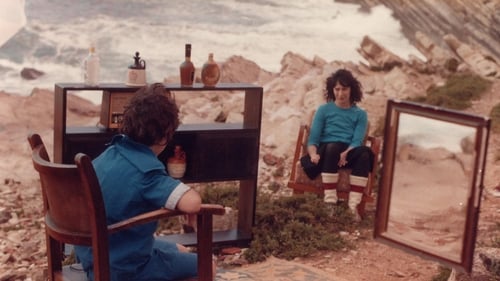
Screenplay
A surreal odyssey in which a melancholic maidservant crosses paths with a homicidal little boy, travels to a tiny island of pirates and encounters a man with multiple personalities.

Director
A surreal odyssey in which a melancholic maidservant crosses paths with a homicidal little boy, travels to a tiny island of pirates and encounters a man with multiple personalities.

Small Role (uncredited)
A sailor sees a student killing his teacher and decides to spin a few yarns for him. He tells the boy of his many adventures in exotic South American ports where he visited opium dens and stayed in cathouses. In such dark, dreamlike places, the sailor meets many strange, mystical characters.

Writer
A sailor sees a student killing his teacher and decides to spin a few yarns for him. He tells the boy of his many adventures in exotic South American ports where he visited opium dens and stayed in cathouses. In such dark, dreamlike places, the sailor meets many strange, mystical characters.

Director
A sailor sees a student killing his teacher and decides to spin a few yarns for him. He tells the boy of his many adventures in exotic South American ports where he visited opium dens and stayed in cathouses. In such dark, dreamlike places, the sailor meets many strange, mystical characters.

Director
Ruiz, rediscovering the things of his past in Chile ten years after the Coup, regards them now with the eyes of another world. This other world is cinema, the mechanical gaze of a Super 8 camera. This eye sees very deeply, even beyond reality and brute memory.
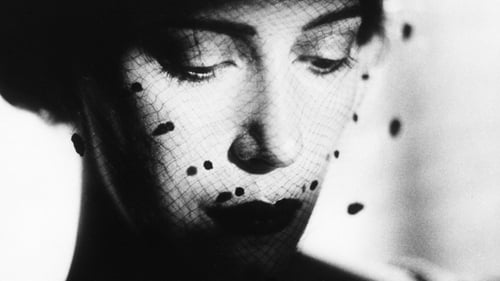
Writer
Now Titus' father has died, the new emperor will be free to marry his beloved Bérénice. Also In love with Bérénice, Titus' friend Antiochus plans to flee Rome rather than face the marriage. However, public opinion about the pairing causes Titus to choose his duty to Rome over his love for Bérénice, and he sends his love rival to tell Bérénice the news...

Director
Now Titus' father has died, the new emperor will be free to marry his beloved Bérénice. Also In love with Bérénice, Titus' friend Antiochus plans to flee Rome rather than face the marriage. However, public opinion about the pairing causes Titus to choose his duty to Rome over his love for Bérénice, and he sends his love rival to tell Bérénice the news...

N°228
Reel 23 of Gérard Courant’s on-going Cinematon series.

Himself
Portrait of "cinéaste" Ruiz, seemingly at his typewriter, in Courant's ongoing "Cinématon" series.

Director
Raul Ruiz filmed the gardens of the Château de Versailles. The first one, French, focuses on the King's Square (a space where everything is arranged in order to be seen). The other one, English, is the exact opposite, because from any point within it, one falls out of view. Within these two constructions, the labyrinth and the concentric circles, Ruiz conceives a 'photo-roman' plot: a husband and his mistress rendez-vous in the English garden (one understands why) and, through a series of accidents and afraid of being seen, he relocates to the other garden.
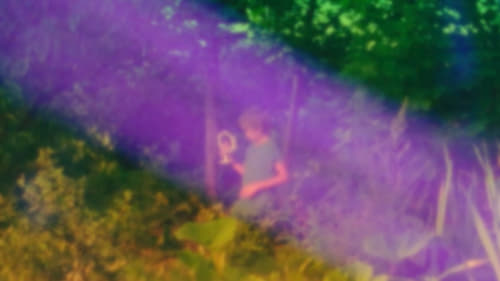
Writer
A parody of anthropology, linguistics, and cultural imperialism. The film follows an unlikely team of linguists into the wilds of an ersatz Patagonia to study the last speakers of a dying language. That language apparently consists of a single word, which therefore means everything.

Director
A parody of anthropology, linguistics, and cultural imperialism. The film follows an unlikely team of linguists into the wilds of an ersatz Patagonia to study the last speakers of a dying language. That language apparently consists of a single word, which therefore means everything.

Screenplay
A series of compounding dramatic situations, drawn from Georges Polti's '36 Dramatic Situations' and acted out in shadowplay and voiceover.

Director
A series of compounding dramatic situations, drawn from Georges Polti's '36 Dramatic Situations' and acted out in shadowplay and voiceover.

Director
A small group of well-to-do vacationers go on a hiking trip into the woods. Foolishly unprepared to deal with Mother Nature and their situation, they wander around lost for days and weeks, becoming more and more fatigued, hungry, and desperate. A brief encounter with a pair of epicureans on a bridge fails to garner them any of the gluttons' feast due to a language barrier. Eventually their party begins to die, and the survivors ration their meat among them, attaching a religious-type ritual to its dispensation.

Director
Ruiz’s short about Pieter Wiersma, a Dutch sculptor who makes intricate sandcastles.

Writer
A man awakens to find himself immersed in a real-life scenario of a board game with an ever expanding cartography.

Director
A man awakens to find himself immersed in a real-life scenario of a board game with an ever expanding cartography.

Writer
In 1978, Ruiz was commissioned to make a television documentary about the French elections from the viewpoint of a Chilean exile in Paris’ eleventh arrondissement. But, contrary to the producers’ expectation, the Left lost. Ruiz seized on this anti-climax to make a documentary about nothing except itself – a film whose central subject is forever lost in digression and ‘dispersal’, harking back to his Chilean experiments of the ‘60s. Its political content is deliberately left negligible: it’s hard to tell at the end who did actually win the election, let alone why.

Director
In 1978, Ruiz was commissioned to make a television documentary about the French elections from the viewpoint of a Chilean exile in Paris’ eleventh arrondissement. But, contrary to the producers’ expectation, the Left lost. Ruiz seized on this anti-climax to make a documentary about nothing except itself – a film whose central subject is forever lost in digression and ‘dispersal’, harking back to his Chilean experiments of the ‘60s. Its political content is deliberately left negligible: it’s hard to tell at the end who did actually win the election, let alone why.

Writer
With his body now devoid of substance and able to fly, N. wanders looking for a way to return to life and reintegrate into the world.

Director
With his body now devoid of substance and able to fly, N. wanders looking for a way to return to life and reintegrate into the world.

Director
Short documentary film on the construction of the new town, Marne-la-Vallée.

Director
The most critically celebrated Rue essay of 1979 was the two-part Petit Manuel d'Histoire de France, directed by the exiled Chilean filmmaker Raul Ruiz, who brought to this commission some of the stylistic fabulism for which he was becoming known in avant-garde cinema.

Writer
A charming tale of murder, perversity and narrative echoes told through shots of barking dogs and a La jetée-like series of stills.

A charming tale of murder, perversity and narrative echoes told through shots of barking dogs and a La jetée-like series of stills.

Director
A charming tale of murder, perversity and narrative echoes told through shots of barking dogs and a La jetée-like series of stills.

Director
The film centers on a Dominican monk named Jérôme (played by one actor in colour and another actor in black-and-white) and his interactions with various higher-ups within the French Catholic Church. Ruiz's intention was to reflect the ideological arguments that plagued Latin American left-wing political parties.
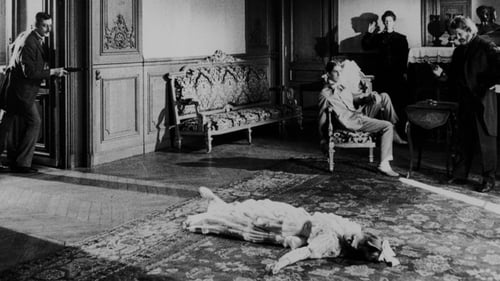
Writer
Two narrators, one seen and one unseen, discuss possible connections between a series of paintings. The on-screen narrator walks through three-dimensional reproductions of each painting, featuring real people, sometimes moving, in an effort to explain the series' significance.

Director
Two narrators, one seen and one unseen, discuss possible connections between a series of paintings. The on-screen narrator walks through three-dimensional reproductions of each painting, featuring real people, sometimes moving, in an effort to explain the series' significance.
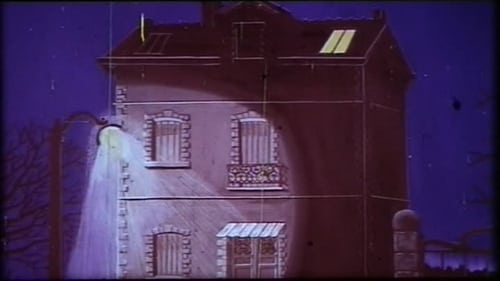
Scenario Writer
Eleven-year old Dora (Nathalie Manet) is forced to chase after clues concerning her inventor-father's death while being chased by thugs working for big industry. Not only is she seeking to understand her father's mysterious death, but some of the clues he gave her indicate that he invented something unusual which the big companies want. She barely escapes being kidnapped and is helped in her search by a magical fairy and an aspiring actress.

Director
Ruiz on the film: "Les Divisions is a documentary about the Château de Chambord and the title comes from the Divisione of Johannes Scotus (Erigena), the ninth century Irish philosopher (who was a 'realist', although the film is more 'nominalist' in characterization of the castle which presents itself as a representation). I say that it is a representation, since it is neither practical for military purposes (too many doors), nor to live in (too many draughts), but only as pure representation. So for the commentary, I tried to imagine how a Renaissance philosopher would view it in a pastiche of a scholastic or gothic text, then a pastiche of Fichte's Vocation of Man and finally a pastiche of Baudrillard."

Chilean refugee
A thriller in which the characters are Latin-American exiles living in Paris. It is also a comedy about artists who play at revolution rather than actually participate in one

Racial, social and cultural aspects of La Paz (called Chuquiago by the Aymaras) seen through four stories.

Writer
Two salesmen in Honduras are looking everywhere for their lost pal.

Director
Two salesmen in Honduras are looking everywhere for their lost pal.

Director
A documentary on the exiled Chilean painter Sotelo which focuses on the painter's voice rather than the paintings themselves.

Screenplay
Chilean exiles in Paris discuss the problems facing them. They kidnap and attempt to re-educate a touring singer from their fatherland.

Production Director
Chilean exiles in Paris discuss the problems facing them. They kidnap and attempt to re-educate a touring singer from their fatherland.

Director
Chilean exiles in Paris discuss the problems facing them. They kidnap and attempt to re-educate a touring singer from their fatherland.

Screenplay
The life of a right-wing housewife in Chile during the prior days to Salvador Allende's military overthrow.

Writer
The film captures the activities of the inhabitants in the countryside, in southern Chile, and the CORA (Corporation for Agrarian Reform). Although the action was filmed in four days and four nights in 1971, the movie was only finished in France in 1973, after the military coup.

Producer
The film captures the activities of the inhabitants in the countryside, in southern Chile, and the CORA (Corporation for Agrarian Reform). Although the action was filmed in four days and four nights in 1971, the movie was only finished in France in 1973, after the military coup.

Director
The film captures the activities of the inhabitants in the countryside, in southern Chile, and the CORA (Corporation for Agrarian Reform). Although the action was filmed in four days and four nights in 1971, the movie was only finished in France in 1973, after the military coup.

The young Marcela leaves her small Chilean village and travels to Santiago in order to find work as a secretary.

Screenplay
A young working class girl falls in love with an upper class boy who is part of the plot to assassinate General Schneider, head of the Chilean Army.

Director
A young working class girl falls in love with an upper class boy who is part of the plot to assassinate General Schneider, head of the Chilean Army.

Director
Mordant, self-aware, freighted with sensitivity toward Chile’s problem, wary of caricature, disposed toward consciousness of human fallibility, it is a deft blend of fiction and documentary set in the tumultuous days leading up to the election of Salvador Allende in 1970.

Writer
Four drunken literary bohemians write a short story about a pact with the Devil just as that very story is happening to them.

Director
Four drunken literary bohemians write a short story about a pact with the Devil just as that very story is happening to them.

Director
Raoul Ruiz shot this film on March 28th, 1971, during the big peasant march in Temuco, Chile, when the bill that gave the full citizenship and civil rights to the Mapuche Indio people was approved. Raoul Ruiz listens to their painful stories.

Writer
A foreign journalist arrives on a small Pacific island 200 miles off the coast of South America. Once a leper colony, the island was later transformed into a prison and then, under U.N. mandate, made into an independent republic. Yet despite democratic structures, the inhabitants--who speak a strange dialect composed of Spanish and English--still obey the old prison rules. After sending back detailed accounts of the torture and repression seen everywhere, the journalist realizes that she"s fallen into the trap created for her by the islanders: lacking natural resources, the island"s main export is news. The clearest anticipation of Ruiz"s later European work, The Penal Colony is a powerful document of the tensions and contradictions in Chile in the months before Allende"s electoral victory.

Director
A foreign journalist arrives on a small Pacific island 200 miles off the coast of South America. Once a leper colony, the island was later transformed into a prison and then, under U.N. mandate, made into an independent republic. Yet despite democratic structures, the inhabitants--who speak a strange dialect composed of Spanish and English--still obey the old prison rules. After sending back detailed accounts of the torture and repression seen everywhere, the journalist realizes that she"s fallen into the trap created for her by the islanders: lacking natural resources, the island"s main export is news. The clearest anticipation of Ruiz"s later European work, The Penal Colony is a powerful document of the tensions and contradictions in Chile in the months before Allende"s electoral victory.

Writer
A glimpse at the few days and nights in the lives of a brother and sister, Amanda and Tito, in Santiago’s semi-criminal underworld. A rambling portrait of Chilean society.

Director
A glimpse at the few days and nights in the lives of a brother and sister, Amanda and Tito, in Santiago’s semi-criminal underworld. A rambling portrait of Chilean society.

Editor
Absurdist short about a man with a suitcase and a man inside that suitcase.

Writer
Absurdist short about a man with a suitcase and a man inside that suitcase.

Director
Absurdist short about a man with a suitcase and a man inside that suitcase.
